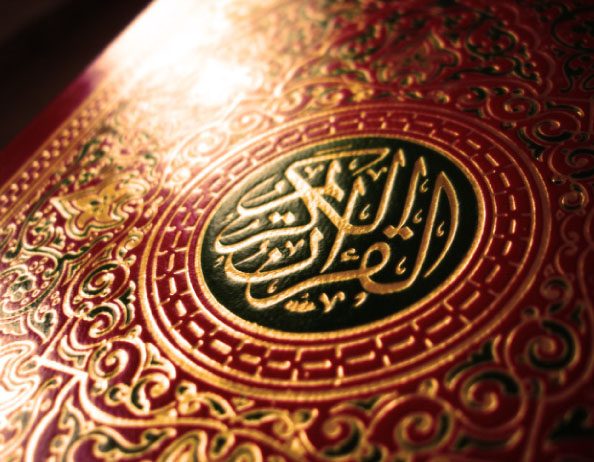EXCLUSIVE SERIALISATION
We proudly present the first full English translation of the commentary of Chapter 113, Sūrah al-Falaq, by Hazrat Mirza Bashiruddin Mahmud Ahmad (ra) in his magnum opus: Al-Tafsīr Al-Kabīr – The Grand Exegesis.

© Shutterstock
In the previous edition we explored certain meanings of al-Falaq.
In this edition, we go through the lexical analysis of the word Ghāsiq.
Translated by Murtaza Ahmad.
Edited by The Review of Religions Translation Team.
وَمِنْ شَرِّ غَاسِقٍ إِذَا وَقَبَ
And to be protected against all the mischiefs of the one that causes darkness when it overspreads. (4)
Lexical Analysis[*]
(4) غَاسِقٌ [Ghāsiq] is an active participle which is derived from the root غَسَقَ [gha-sa-qa]. The expression غَسَقَتْ عَيْنُهُ غُسُوْقًا [ghasaqat ‘ainuh ghusūqan] means دَمَعَتْ وَقِيْلَ: إِنْصَبَّتْ وَقِيْلَ: أَظْلَمَتْ [dama‘at wa qīl: inṣabbat, wa qīl: aẓlamat], i.e., the eyes filled with tears. Some have said that the expression غَسَقَتْ عَيْنُه [ghasaqat ‘ainuh] is used when tears flow from the eyes, so that the vision is blurred. When Arabs say غَسَقتِ السَّمَاءُ غَسْقًا [ghasaqat al-samā’ ghasqan] it conveys the meaning of إِنْصَبَّتْ وأَرَشَّتْ [inṣabbat wa arashshat], i.e. the clouds burst forth with torrential rain. Furthermore, غَسَقَ اللَّبَنُ [ghasaqa al-laban] means إِنْصَبَّ مِنَ الضَّرْعِ [inṣabba min al-ḍar‘], or because there was an excess of milk, it began to leak from the breast. The expression غَسَقَ الْجَرْحُ [ghasaqa al-jarḥ] signifies سَالَ مِنْهُ شَيْءٌ أَصْفَرُ[sāla minh shai’ aṣfar] i.e. yellow pus flowed from the wounds. And when it is said: غَسَقَ اللَّيْلُ غَسْقًا [ghasaqa al-lail ghasqan] it means إِشْتَدَّتْ ظُلْمَتُهُ [ishtaddat ẓulmatuh], i.e. the darkness of the night prevailed (al-Aqrab).
الْغَاسِقُ [al-ghāsiq] means الْقَمَرُ وَاللَّيْلُ إِذَا غَابَ الشَّفَقُ وَاشْتَدَّتْ ظُلْمَتُهُ [al-qamar wa al-lail idhā ghāba al-shafaq wa ishtaddat ẓulmatuh] i.e. الْغَاسِقُ [al-ghāsiq] refers to both the moon and the night when its darkness is most intense. قِيْلَ أَيِ اللَّيْلُ إِذَا دَخَلَ [qīl ay al-lail idhā dakhala] i.e. similarly, الْغَاسِقُ [al-ghāsiq] is said to refer to the night when its darkness spreads. Or it may imply, according to some, أَوِ الثُّرَيَّا إِذَا أَسْقَطَتْ لِكَثْرَةِ الطَّوَّاعِيْنَ وَالْأَسْقَامِ عِنْدَ سُقُوْطِهَا [aw al-thurayyā idhā asqaṭat li kathrat al-ṭawwā‘īn wa al-asqām ‘inda suqūtihā], i.e., that غَاسِقٌ [ghāsiq] refers to the stars of the Pleiades when they shift from their position, resulting in the development of various diseases. (al-Aqrab)
According to al-Mufradāt غَسَقُ اللَّيْلِ [ghasaq al-lail] refers to شِدَّةُ ظُلْمَتِهِ [shiddat ẓulmatih], meaning the night’s intense darkness. And قَالَ مِنْ شَرِّ غَاسِقٍ وَذَلِكَ عِبَارَةٌ عَنِ النَّائِبَةِ بِاللَّيْلِ كَالطَّارِقِ [qāla min sharr ghāsiq wa dhālika ‘ibarah ‘an al-nā’ibah bi al-lail ka al-ṭāriq], that is, in the phrase مِن شَرِّ غَاسِقٍ [min sharr ghāsiq] that Allah Almighty has used, غَاسِقٌ [ghāsiq] refers to a great catastrophe or accident that happens at nighttime. Further, it is recorded that وَقِيْلَ: الْقَمَرُ إِذَا كَسَفَ [wa qīl al-qamar idhā kasafa] That is, it is said that the moon is also referred to as غاسِقٌ [ghāsiq] when its light dims when there is an eclipse.
وَقَبَ [wa-qa-ba]
وَقَبَتِ الشَّمْسُ وَغَيْرُهَا [waqabat al-shams wa ghairuhā] means غَابَتْ [ghābat] i.e. the sun disappeared. And when one says وقَبَ الرَّجُلُ وَقْبًا [waqaba al-rajul waqban] it signifies دَخَلَ فِي الوَقْبِ [dakhala fī al-waqb] i.e. so-and-so entered the darkness. The expression غَارَتْ عَيْنَاهُ [ghārat ‘aināh] means that his eyes had sunken in. The words وَقَبَ الظَّلَّامُ عَلَى النَّاسِ [waqaba al-ẓalām ‘alā al-nās] convey the sense that دَخَلَ وَانْتَشَرَ [dakhala wa intashara] which means darkness overcame the people. And when we say وَقَبَ الْقَمَرُ [waqaba al-qamar] it implies دَخَلَ فِي الْكُسُوفِ [dakhala fī al-kusūf], meaning the moon was eclipsed. Furthermore, الْوَقْبُ [al-waqb] means نُقْرَةٌ فِي الصَّخْرَةِ يَجْتَمِعُ فِيْهَا الْمَاءُ، [nuqrah fī al-ṣakhrah yajtami‘u fīhā al-mā’] the crater in the rock wherein water collects and accumulates. It also refers to الْكُوَّةُ الْعَظِيْمَةُ فِيْهَا ظِلٌّ [al-kuwwat al-‘aẓīmah fīhā ẓill] meaning an abyss. (al-Aqrab).
Thus, وَمِن شَرِّ غَاسِقٍ إِذَا وَقَبَ [wa min sharr ghāsiq idhā waqab] means:
- I seek refuge from the evil of the darkness of the night when it spreads.
- I seek refuge from the evil of the time when the sun sets.
- I seek refuge from the evil of the time of a solar or lunar eclipse.
- I seek refuge from the evil of the period of hardship that comes after prosperity.
- I seek refuge from misfortunes that occur during the night.
- I seek protection from the evil of the time when man falls into an abyss.
The serialisation of Sūrah al-Falaq will continue in the next edition.
* Where Arabic synonyms are used to explain a previous Arabic word or phrase, the literal meaning is not necessarily provided, in light of the similar meanings. [Publisher]




Add Comment